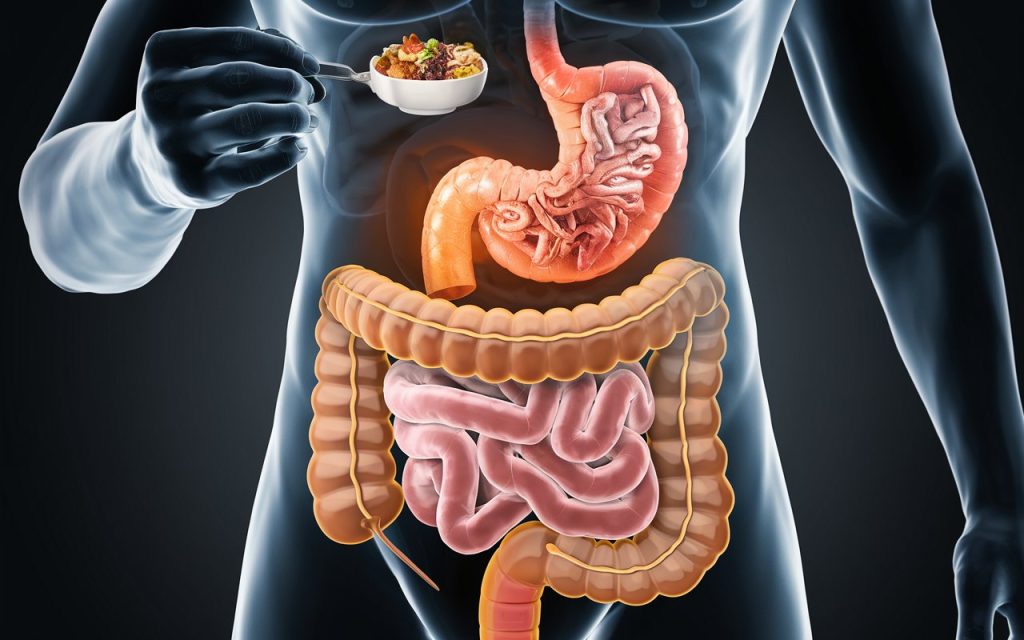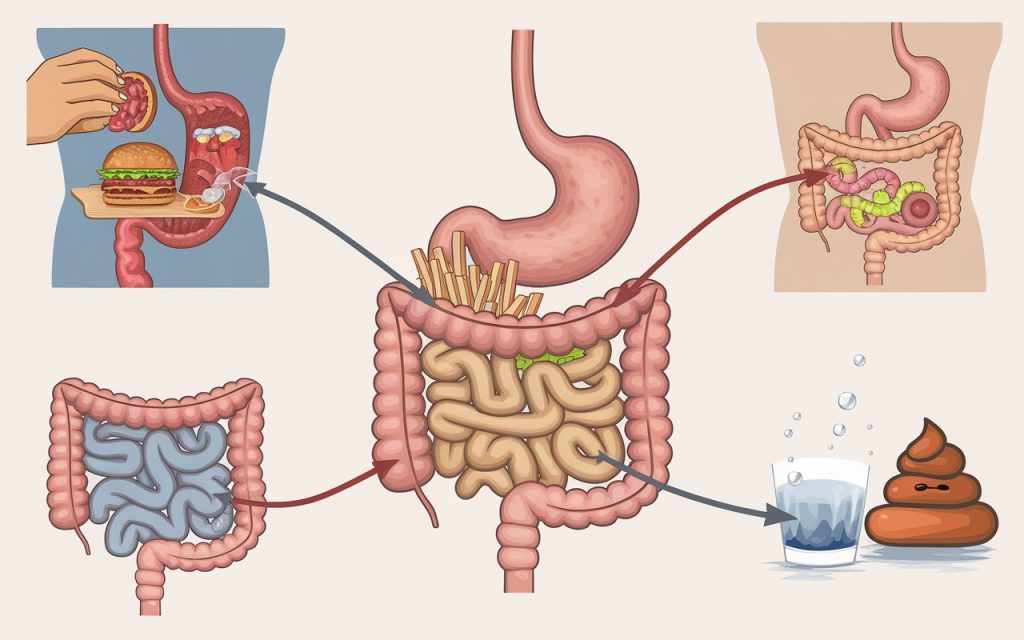Table of Contents
Ever wondered how long does it take for food to turn into poop? It happens daily, yet most of us don’t give much thought to it. The digestion process is fascinating, and understanding how long it takes for food to move through your body can provide insight into your health. In this article, we’ll explore exactly how long it takes for food to turn into poop, breaking down each stage of digestion with easy-to-understand facts.
The Journey of Food Through Your Digestive System

What Happens After You Eat?
When you take a bite of food, the process of turning it into poop begins. Your digestive system is like a conveyor belt that moves food through different stages, transforming it into nutrients your body can use and waste that gets eliminated.
Chewing and Swallowing (1-2 Minutes)
The first stage of digestion begins in your mouth. Chewing breaks down food into smaller pieces, making it easier for your body to digest. Your saliva contains enzymes that help break down carbohydrates right away. After chewing, you swallow the food, and it travels down your esophagus to your stomach, which only takes a few seconds.
Stomach Digestion (2-6 Hours)
Once food reaches your stomach, it’s mixed with stomach acids and enzymes. This breaks it down further, especially proteins. The food is turned into a liquid substance called chyme, which is easier for the small intestine to absorb. Depending on your food type, this process can take two to six hours. Fats, for example, take longer to digest than carbohydrates.
How Long Does It Take for Food to Reach Your Intestines?
Small Intestine (3-6 Hours)
After leaving the stomach, the chyme moves into the small intestine, where most nutrients are absorbed into the bloodstream. The small intestine is a long, coiled tube, and it takes 3 to 6 hours for food to pass through this stage. Enzymes from the pancreas and bile from the liver help break down fats, proteins, and carbohydrates even more during this time.
How long does it take for food to turn into poop? Absorbing Nutrients
As food moves through the small intestine, the walls absorb nutrients like vitamins, minerals, and sugars. These nutrients are then sent to the liver, which filters toxins and stores energy for later use. The large intestine receives the leftover waste.
What Happens in the Large Intestine?

Large Intestine (10-24 Hours)
After passing through the small intestine, the leftover waste enters the large intestine, also known as the colon. The procedure moves much more slowly at this point. In the large intestine, water and electrolytes (like sodium) are absorbed from the waste. This is why poop is solid—most of the water has been removed.
Forming Poop
As the waste moves through the colon, it turns from liquid into solid poop. Bacteria in the considerable intestine help break down any remaining nutrients. How long does it take for food to turn into poop? The process of forming poop can take between 10 and 24 hours, depending on the individual’s digestive speed and diet. High-fiber foods can move through the colon faster, while low-fiber foods may take longer.
Factors That Affect Digestion Time
What Affects How Long It Takes for Food to Turn Into Poop?
Several factors influence how long it takes for food to turn into poop. Here are some common ones:
Type of Food
How long does it take for food to turn into poop? Different types of food digest at various speeds. For example, carbohydrates like bread and pasta are usually digested faster than proteins like meat or fats like cheese. High-fiber foods, such as vegetables and whole grains, help speed up the process because they add bulk to the stool and make it easier for the body to push waste through the intestines.
Hydration
Drinking plenty of water is essential for digestion. When you’re dehydrated, your body absorbs more water from the waste in your large intestine, which can slow down the process and make your poop harder. Staying hydrated helps food move through your digestive system more smoothly.
Activity Level
Exercise plays a significant role in how fast your body digests food. Physical activity helps stimulate the muscles in your digestive tract, making it easier for waste to move through. More active people tend to have faster digestion times. How long does it take for food to turn into poop?
Age
As we age, our digestive systems slow down. Older adults may experience longer digestion times, especially if they have a diet low in fiber or are less active.
Medical Conditions
Some medical conditions, such as irritable bowel syndrome (IBS), can slow down or speed up digestion. If you’re concerned about the speed of your digestion, it’s a good idea to talk to a doctor.
Signs of Healthy Digestion
Is Your Digestion Working Well?
Understanding how long it takes for food to turn into poop can help you gauge the health of your digestive system. A healthy digestion time usually means absorbing nutrients efficiently and excreting waste regularly.
Regular Bowel Movements
Most people have bowel movements once or twice a day, but this can vary. If you go every few days or more than three times daily, you should check your diet or see a healthcare provider.
Stool Consistency
Healthy poop should be soft, formed, and easy to pass. If your poop is hard or lumpy, it could be a sign that digestion is taking too long. On the other hand, loose or watery stools may indicate that food is moving through too quickly.
Also read: How Much Does Teeth Whitening Cost? Reveal Stunning Results.
In conclusion, the time it takes for food to turn into poop varies depending on many factors like diet, hydration, and activity level. How long does it take for food to turn into poop? For most people, the entire process takes between 24 and 72 hours. Paying attention to your digestion, staying hydrated, eating fiber-rich foods, and exercising regularly can help your body digest food efficiently and stay healthy.





